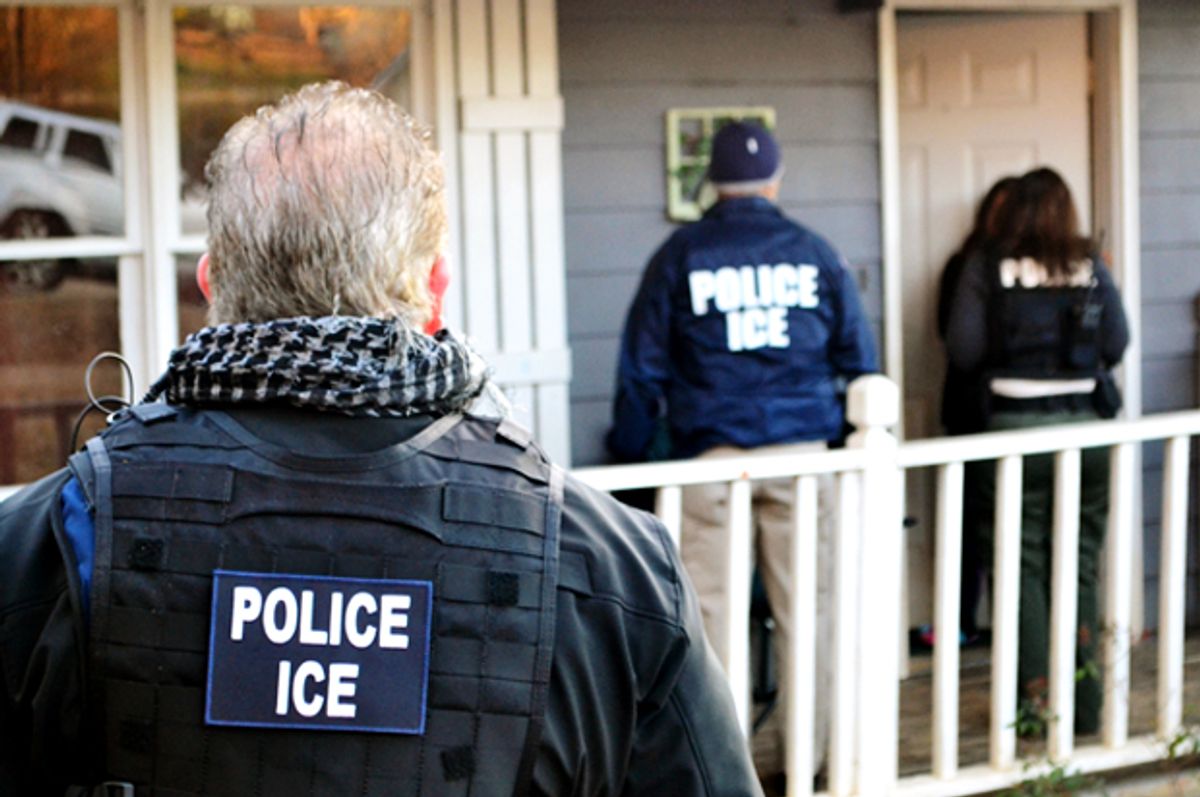 The only way deported Vietnam veteran Manuel de Jesus Castano was able to get back in the country he had considered his home was to die.
The only way deported Vietnam veteran Manuel de Jesus Castano was able to get back in the country he had considered his home was to die.
He was buried with full military honors at Fort Bliss, near El Paso, Texas.
The American Civil Liberties Union has documented at least 200 cases of deported veterans who aren’t American citizens. Rep. Vicente Gonzalez (D-Texas) has sponsored H.R. 3429, to bring home deported veterans or prevent them from being deported.
“These veterans served our nation honorably,” Gonzalez said. “This legislation is our chance to bring back our deported veterans and make sure that the federal government takes better care of all those who put their lives on the line for our freedom.”
The U.S. Immigration and Customs Enforcement doesn’t track how many veterans are deported, but deportation arrests have soared since Trump took office. Trump signed an executive order to expand those who can be deported to noncitizens who have committed a chargeable criminal offense.
Army veteran Miguel Perez Jr., who served two tours in Afghanistan has been ordered to return to Mexico where he hasn’t lived since he was 8. Perez, who has PTSD, is appealing and started a hunger strike.
“If it comes down to me being deported, I would rather leave this world in the country I gave my heart for,” Perez said.
Perez became a permanent resident in 1989 and said he mistakenly thought he became a citizen because of his military service. He served half of a 15-year prison sentence after he was pleaded guilty to distributing less than 100 grams of cocaine. After his release from prison in September 2016, he was turned over to ICE and sent to a Wisconsin detention center to await deportation.
Perez’s attorney said his life would be in danger if he is deported to Mexico where drug cartels target veterans with combat experience to work on their behalf.
Noncitizen soldiers have fought for our country since the Revolutionary War. Polish noble Casimir Pulaski died of injuries in 1779 from a battle in Savannah, Ga. During World War II, thousands of immigrants fought overseas and became citizens.
Immigrants once were able to apply for citizenship during basic training. In October, the Trump administration reversed the expedited path to citizenship, citing concerns about potential spies.
Perez unsuccessfully sought a pardon from Illinois Gov. Bruce Rauner. A former Marine, Marco Chavez Medina, was able to re-enter the U.S. in December after 15 years in Mexico because he was pardoned in an animal cruelty case by California Gov. Jerry Brown.
Honorably discharged veterans, even those who have been deported, like Castano who died in 2012, are entitled to burial at a U.S. military ceremony. They also get American flags laid over their caskets and engraved headstones.
“When they die, we bring their dead bodies back across the border and give them full military honors,” said Nathan Fletcher, a Marine veteran and former California assemblyman. “It’s absurd that we don’t allow them to come back alive.”



Shares